New animals are an exciting addition to the homestead, but there’s always a risk when outsiders come into the fold. You never know what extra parasites may accompany them, and potentially damage your healthy herd or flock. This was the case with our new Brahma hen.
We loved her beetle-green feathers and quirky feathered feet, but after a few days in quarantine, the impact of her previous life on an over-crowded farm was clear. When we bought her, we had also, apparently, bought a belly full of worms as a bonus.
You may find yourself in a similar situation. The chickens appear pretty normal from the outside, but check the area under the roost early in the morning, and you may find the unsightly appearance of a soupy poo full of wriggling roundworms.
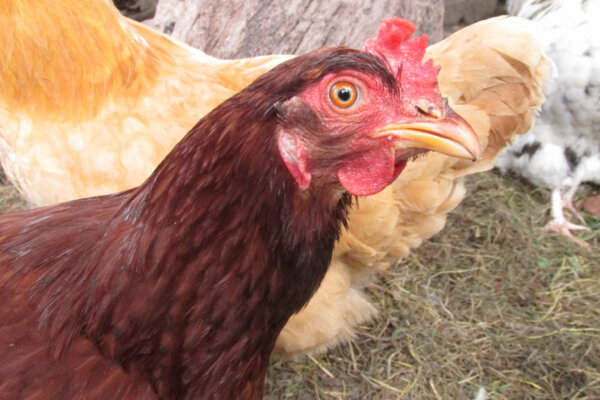
Or, you may notice a chicken that just doesn’t gain good weight despite a healthy appetite, and appears thin and pale. Don’t panic. Worms don’t have to be a death sentence; they are a call to action. And happily, there are a few different ways to get rid of worms with natural and chemical chicken wormers. Read on to learn more about chicken worms and how to get rid of them with chicken wormers.
Where And How Chickens Get Worms
The first thing to know about worms is that they are everywhere. Their eggs are tucked away in the soil, carried along in wild bird droppings, hidden in grasshoppers and earthworms, and sometimes even blown in with dust. I don’t write that to worry you — it’s just the natural state of things.
Unless you raise your birds in an autoclave, they will be in a constant state of exposure to worm eggs in some form. The good news, however, is that a healthy chicken in a healthy environment has natural defenses against many types of worms and will rarely have trouble.
Animal herbalist Juliette de Baïracli Levy writes “The free-ranging farm hen is singularly free from worms; the commercially exploited hen is rarely without them.”
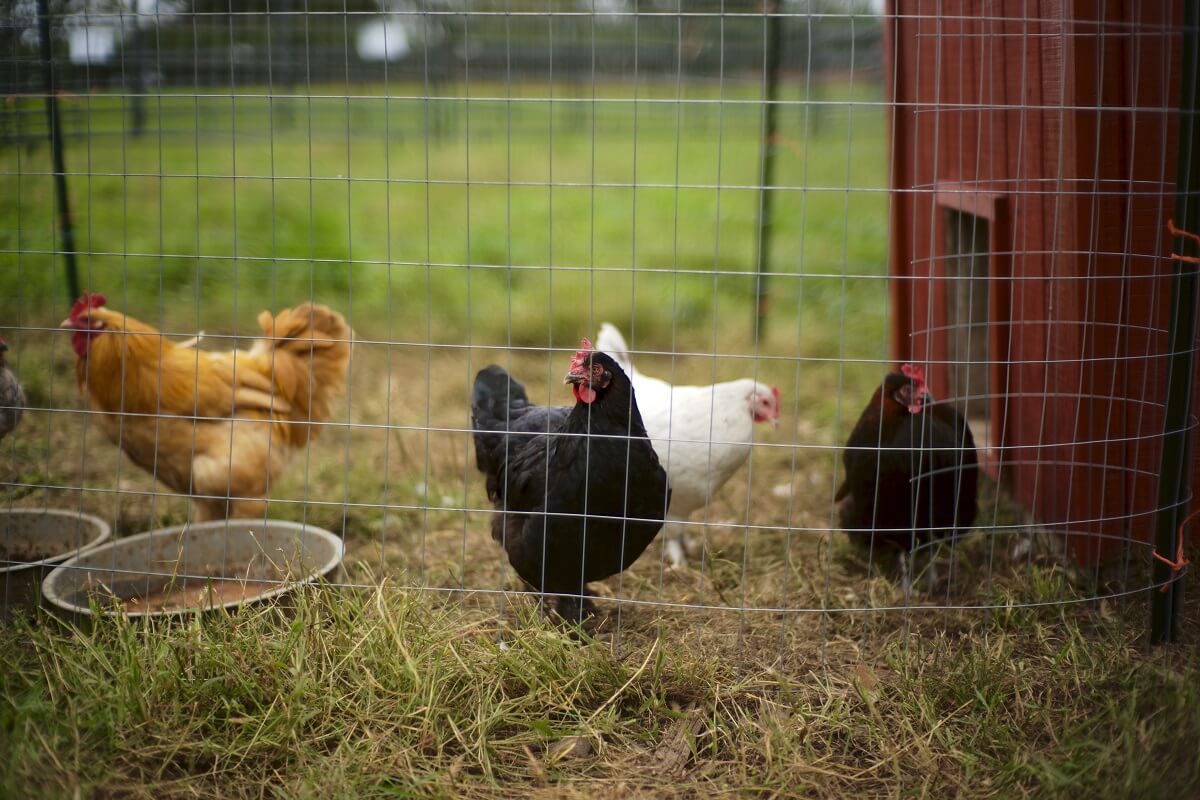
If you find that your flock has a parasite problem, the issue is not necessarily just the worms. It’s an indication that something bigger is wrong in your chicken world. Worms are on the hunt for an ideal host — a bird whose defenses are low because of poor health.
Overcrowding, unclean living environments, processed and unnatural foods, and lack of ground rotation will likely create the sickly, unhealthy poultry that parasites are out there waiting to infest.
Related Post: Chicken Mites
Of course, perfectly healthy chickens in a good environment could pick up worms from a sick chicken that has been recently introduced to the flock as well. This is why a 4-week quarantine of new animals is so crucial before introducing them to the flock. It not only allows them to get used to you and their new home, it also allows you to scope out their health and treat accordingly before they pose a threat to the rest of the birds.
The Signs Of A Wormy Chicken
None of these are going to be nice to talk about, but there are lots of signs to watch for in the intestinal battle waging in your flock. Symptoms are going to range from “ewww” to “I’m really not hungry anymore.” Keep that in mind and read on!
Pale Wattles And Comb
Seeing your chicken’s headgear switch from a healthy red to an anemic yellow could be just that — anemia due to worm infestation. Pale comb could also be caused by heat exhaustion or having just laid an egg, so don’t react based on the sight of a pale bird alone.
Skinny Birds With Huge Appetites
The irony of the worm-infested animal is that they will want to eat all they can get, and all they’ll show for it is bones and poor conformation. The worms steal much of the birds’ valuable nutrition leaving them half-starved.
Gaping And Coughing
Gapeworm is a roundworm that specifically attacks the throat area, causing birds to extend their necks, cough, shake their heads, and look generally stressed with their mouths uncomfortably open. However, this could also indicate that something is caught in their throat.
Though adults can be infected, they don’t always exhibit the characteristic of coughing. Young chicks, however, are in danger if they become infested, and mortality can be high with a bad gapeworm infection.
Worms In Droppings
This is an obvious symptom, but only if you notice it. Make it a point to inspect your flock’s poop daily as it will always give you some sort of feedback about their health. Roundworms are often found in the droppings of infected birds — usually around three inches long and threadlike.
Be sure not to panic confusing roundworms with fly maggots. Those have been laid in poo after the fact (as nasty flies are wont to do), and they don’t indicate anything wrong with a bird.
Diarrhea
Again, always check your birds’ poo. It’s important to familiarize yourself with the huge range of normal, healthy poop and the indicators of disease. Unhappy digestive systems make unhappy-looking poo — a sure sign that something is off. Worm infestations sometimes manifest themselves as sickly, specifically yellow puddles of goo.
Soiled Vent
Yes, poo again. Chickens like to preen and dust bathe to stay impeccably clean (by chicken standards) so finding a bird with a sticky, poop-covered vent and soiled, gooey feathers dangling all around is a sure sign she’s suffering from something. Soiled vent doesn’t always mean worms, but it does mean you need to pay attention because you do have a sick bird on your hands.
Worms In The Eggs
I saved the worst one for last. Yes, it is possible for worms — roundworms, specifically — to wind up in the oviduct and actually end up in an egg. If this occurs, you probably have a serious infestation on your hands and need to act quickly.
Options For Chicken Wormers
There are essentially two tracts to follow when it comes to worm treatment: chemical and natural. Personally, I have never and will never use chemical treatments on my birds even though others swear by them, so I am admittedly biased. All the same, I’ll try to share a broad spectrum of treatments so that you can make the best decision to suit your personal poultry philosophy, and we’ll discuss chemical options at the end.
Diet Treatment
Finely diced garlic, cayenne pepper, and raw, grated carrot are all-natural vermifuges (worm expellers) that can be used to naturally treat infested birds. Additionally, diced onions, pumpkin seeds, blackberry leaves, elder leaves, wormwood, and hyssop are excellent additions to the healing bird’s diet as they are particularly undesirable to worms.
Including these foods as a normal part of the birds’ diet along with lots of whole seeds, grass, and wild weeds, will also be preventative. As with all-natural treatments, these will only have an effect if the chicken’s environment is also made clean and healthy.
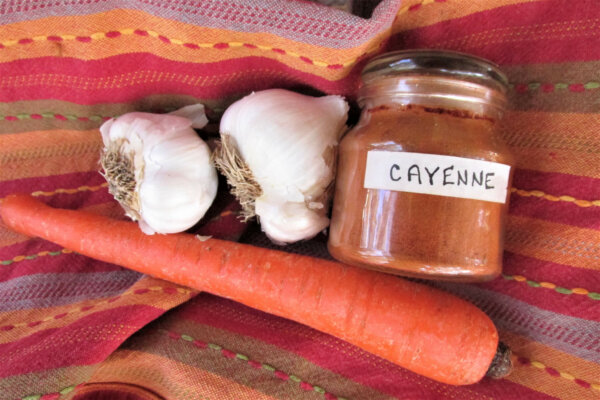
Cleaning and then maintaining the ground and bedding of the affected hen house is crucial for breaking the worm life cycle and truly healing the birds for the long-term.
Related Post: 12 Chicken-Friendly Plants To Grow Next To Coops
A standard dose of worm-fighting food varies with what you have available, but if you need a guideline, two cloves of garlic per hen, mixed in the food with three grated carrots, and a tablespoon of cayenne pepper, is a good place to start.
You can carry on this treatment for ten days — scrupulously cleaning the chickens’ house daily to remove worm eggs — and you will almost certainly see some improvement.
Here are links to two natural worm-fighting recipes that chicken keepers have used with success.
- This woman makes a monthly worm-fighting mash that her chickens adore — and it’s all made with materials you could either find at the grocery store or grow yourself!
- Another option (particularly as fall holidays have people using up pumpkins at a dizzying rate) is this woman’s pumpkin soup recipe full of nutrition and worm-fighting action.
As a note, some people avoid garlic and onions in their birds’ food because they fear it will flavor the eggs. Having fed my chickens garlic and onions for years now, I can confirm that I’ve never had an “allium egg” … I think it’s a rumor, not a fact!
A natural treatment that is available for purchase is Verm-X. I haven’t used it on my own flock (opting to play the chef for them instead) but this all-natural treatment uses herbs rather than isolated chemicals and therefore has no egg withdrawal period.
Apple Cider Vinegar
Even though I’ve used it, I’m on the fence about this one. However, you’ll find many people online touting the benefits of occasionally adding a tablespoon of apple cider vinegar to every liter of their chickens’ water.
Though it is not a cure, the acidic environment it creates is supposed to discourage worms and help tone the chicken’s overall systems. Check out this article for the use of ACV in chicken water and this article against the use of ACV, and decide what you think is best for your birds.
Chemical Chicken Wormers
Since I manage a small flock, I will never recommend chemical treatments (per my earlier bias) but they’re out there, and they are effective in the same way that allopathic medicine is effective. They deliver a result, create drug resistance if overused, and can create the illusion of fixing the problem by removing the symptoms even if the source remains untreated.
Related Post: Chicken Diseases
You can worm your chickens chemically twice a year to stave off any worm infestations, but if their living environment and diet are poor, you will be waging a constant chemical war. As always, do your research, count the cost, and make the decisions that are best for your homestead however you decide.
To acquire most of these treatments, a veterinary prescription may be required. To get that prescription, you’ll usually need to bring in a fecal sample for testing — it would be a shame to treat and stress out your birds unnecessarily!
Additionally, some medications will require an egg withdrawal period, meaning the eggs produced by birds undergoing treatment will need to be discarded — not composted, eaten by humans, fed back to the flock, and certainly not sold. Read the labels carefully. Some chicken wormers like Wazine result in birds with permanently inedible eggs.
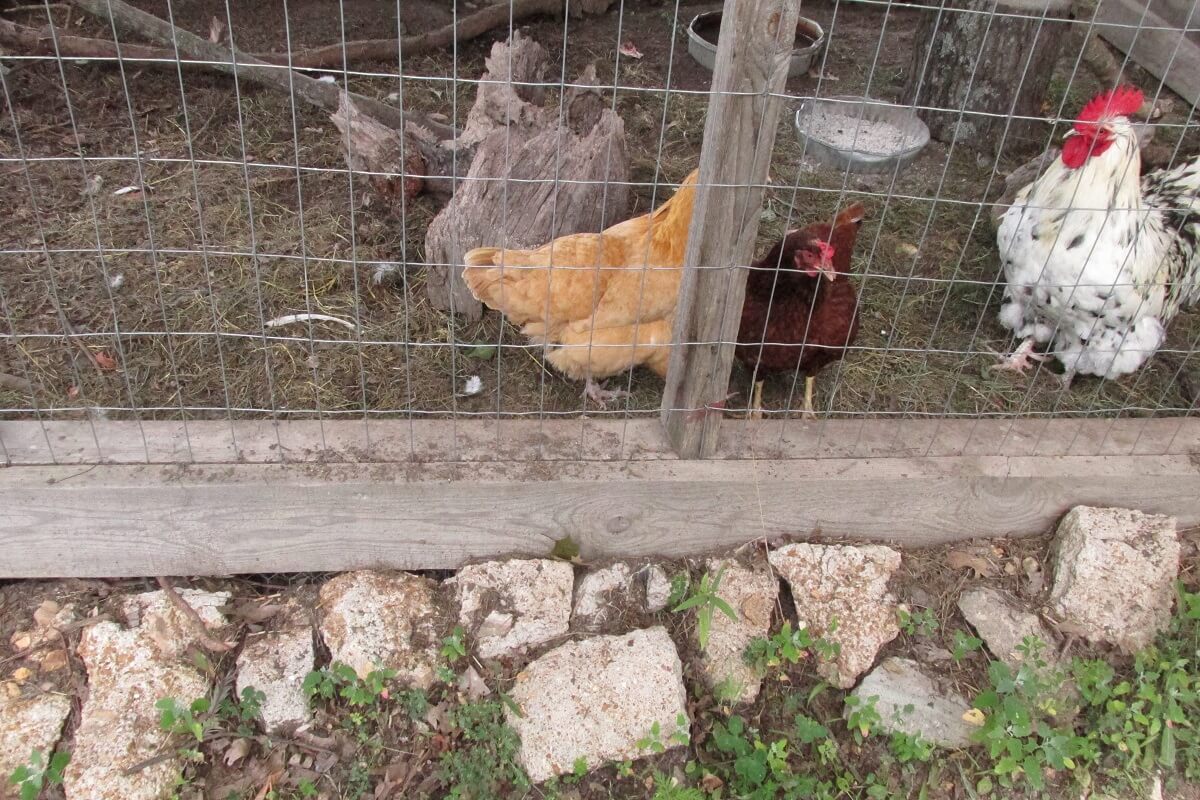
Here’s a short list of some of the medications you may encounter. Keep in mind, none of these are specific brand names. This is a list of the active ingredients that are sold under many different labels.
- Albendazole: Treats a broad spectrum of worms. It does negatively interact with quite a few other medications.
- Piperazine: Effective only against roundworms. Advised against use in laying hens (this is the active ingredient in Wazine) but supposed to be all right in meat hens after a withdrawal period. Overdosage can result in death.
- Fenbendazole: In the United States (I believe), this is the only medication technically licensed for use on poultry so it may be your vet’s first pick. Some products featuring it have a zero-egg withdrawal period. Others have a 7-day withdrawal period.
- Ivermectin: Requires a 7-day egg withdrawal period. This treatment is a little more toxic and therefore unlicensed for poultry, though your vet may still prescribe it.
- Levamisole: requires a 7-day egg withdrawal period. Treats large roundworm, hairworm, and caecal worm. It may only be available in Australia.
How Often Should I Worm My Chickens?
This is largely a personal decision, as some chicken keepers never worm their chickens, and others do it with a near-religious regularity. If you choose to treat your birds naturally through diet, a constant mix of vermifuge food will only benefit them as they live their lives. In a sense, your job is to maintain a worm-unfriendly environment both within and around your birds.
Serious infestations may require heavier doses of garlic or wormwood over the worms’ typical life cycle along with careful cleanup of the living area to remove eggs. The goal is to eventually break the cycle — kill off all the adults, and then kill the hatchling young before they are able to lay eggs again.
This requires consistency in food treatment and cleaning to be effective. You may choose to constantly offer them anti-worm food, or do a monthly special meal to keep things running smooth.
If you treat your birds chemically, the most important thing to be aware of is how much is TOO much. Follow each chicken wormer’s specific treatment schedule and don’t overdo it. It is possible to end up breeding worms that have a built-in resistance to whatever chicken wormer you’re using.
Related Post: Chicken Breed Guide
Some chicken wormers work best if applied to the flock in a seasonal cycle: spring, summer, and fall, with winter being a dormant time for many worms. Again, be sure to read the instructions for each specific wormer to apply it safely. Random worming of random birds — with the exception of worming a new flock inductee during the quarantine period — is usually ineffective.
How To Prevent Worms
The best defense against worms is good flock management practices, hands-down. No amount of medicine or chemical treatment will compensate for dirty living environments and bad food.
If you don’t have the opportunity to free-range your birds, the health of the chickens’ house is your direct responsibility.
The coop should have ample fresh bedding and never smell sour or poopy. If your chickens have an indoor area and an outdoor area, you may need to help them turn over the material in the indoor area. I have found that mine spend all of their waking hours outside.
And even if you use the deep-bedding method, as we do on our homestead, keep adding bulk material for the chickens to scratch through and turn into useful compost. Our hen house never smells bad unless I’ve not added enough material.

The run should be also supplemented with tons of bulk material for chickens to scratch through. If at all possible, rotate runs and allow the ground to rest, chicken-free, for a year before you return birds to it. If it is not possible, make it a practice to totally empty out the run at least once a year, and ensure that all the old, rich compost the chickens have created doesn’t go to waste!
Once you scoop out the old, be sure to add lots more bulk material immediately. Bare ground is not only super boring to a chicken, but it also creates a potentially worm-ridden environment with puddles and muddy conditions.
Related Post: Chicken Coop Plans
Though I add bulk material to our chicken run on a daily basis, I clean it out totally about twice a year — once in the fall, once in the spring. I like to remove the summer compost and refresh the gardens as the fall plantings get going, then take advantage of the huge amount of bulk material that falls freely to the ground in autumn. The sound of chickens playing in a huge pile of leaves is a delight to the heart!
And in the spring, I like to clear out the winter’s material to provide new garden beds with a huge boost of composted goodness. Then I use whatever leaves are still hanging around to refresh the run along with the cut grasses from the first spring mowing.
What advice do you use when it comes to keeping creepy-crawlies out of your chickens’ intestines? Do you agree with my all-natural stance, or do you have more experience with using store-bought chicken wormers? What have you had success with? Share your stories below!


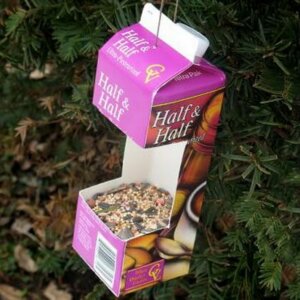
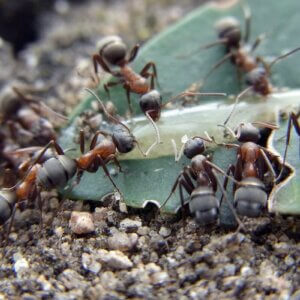
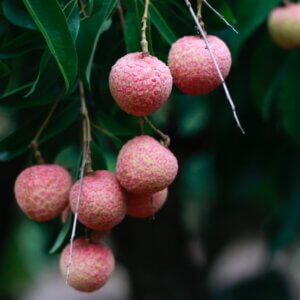

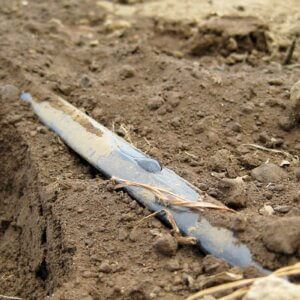

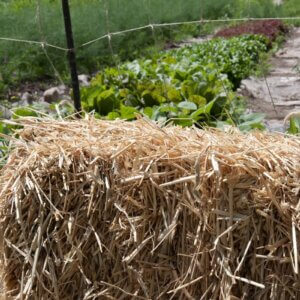



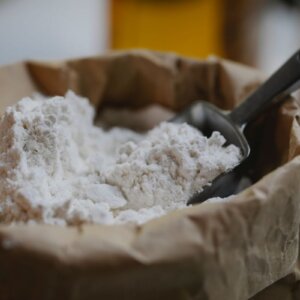




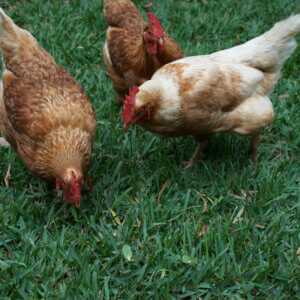


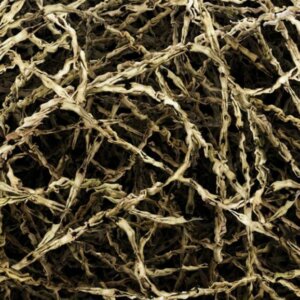
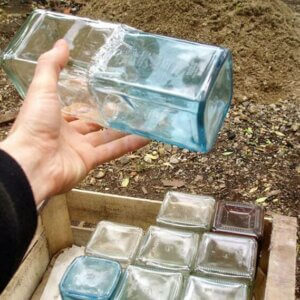

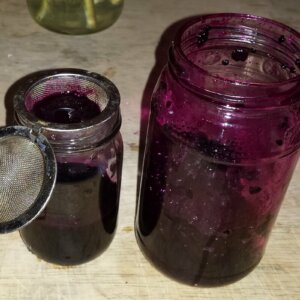


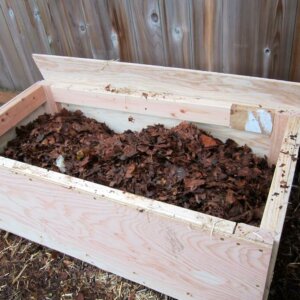
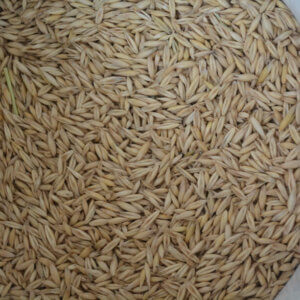
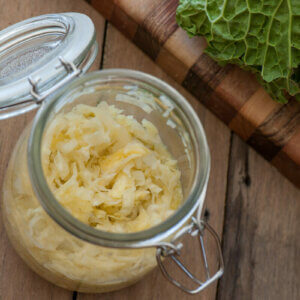


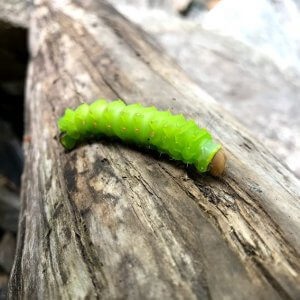
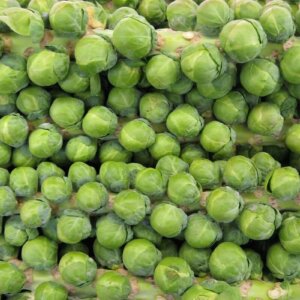


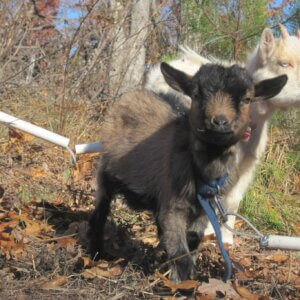




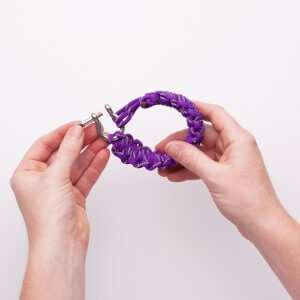
Great recipe my new hen was open mouth breathing, crest purple blue, eyes closed and coughing poor thing! I gave her several eyedrop doses of carrot juice,garlic and spicy pepper and in 1/2 hour the results were great! She stopped breathing with her mouth open and started eating and preening:) thanks for the great article!
Hi Rebekah,
That is fantastic news! Thank you for sharing your experience!
Leigha
Photo/Attachment:
my hen has a soft crop and swollen, she vomits liquid, which natural recipe I can use. she eats and runs normally, thank you